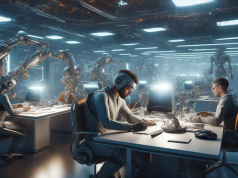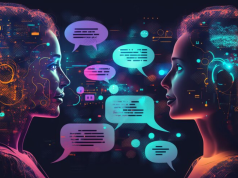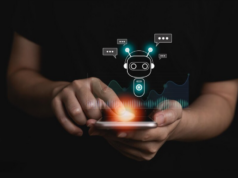The Evolution of OpenAI Chatbots: From Simple Conversations to Intelligent Virtual Agents
Artificial Intelligence has revolutionized various aspects of human life and continues to redefine our interaction with technology. One remarkable development in this field has been the evolution of OpenAI chatbots, which have progressed from simple conversational agents to intelligent virtual agents capable of comprehending and responding to complex queries.
The Early Stages: Simple Conversational Agents
In the early stages, OpenAI chatbots were designed as a solution to facilitate basic communication between humans and machines. These chatbots utilized rule-based systems, predefined conversational flows, and keyword matching to generate responses. Although capable of providing answers to straightforward queries, they lacked the ability to deeply comprehend context or engage in intricate conversations.
Advancement in Language Models and Conversational AI
The turning point came with the advent of advanced language models, such as OpenAI’s GPT (Generative Pre-trained Transformer) series. These models brought significant improvements in understanding the nuances of human languages and generating more contextually accurate responses.
- OpenAI GPT-2: With 1.5 billion parameters, GPT-2 demonstrated the potential to surpass human-like text generation capabilities. It marked a significant shift towards more versatile chatbots.
- OpenAI GPT-3: Building upon GPT-2’s foundations, the GPT-3 model stunned the world with its ability to perform various language tasks, including language translation, summarization, and even creative writing. GPT-3 showcased the potential for developing conversational agents that could understand and respond to a wide range of queries.
Intelligence Unleashed: OpenAI Codex and ChatGPT
The latest milestone in the evolution of OpenAI chatbots can be seen in OpenAI Codex and ChatGPT. OpenAI Codex leverages a combination of deep learning and large-scale data analysis to assist developers in writing code. This technology enables chatbots to understand programming-related queries, provide code suggestions, and even assist in developing software.
ChatGPT represents another leap forward in the evolution of OpenAI chatbots. Through a collaboration of human feedback and advanced training techniques, ChatGPT has been fine-tuned to deliver even more accurate and reliable responses, providing users with a more engaging and interactive experience.
Implications and Future Expectations
The evolution of OpenAI chatbots holds tremendous potential in various domains. Intelligent virtual agents can assist in customer support, education, healthcare, and even creative content generation. As these chatbots continue to advance, it is crucial to ensure ethical use, data privacy, and mitigate the risk of misinformation.
The future of OpenAI chatbots promises further developments in understanding complex queries, generating highly cohesive responses, integrating voice-based interactions, and incorporating domain-specific knowledge. These advancements will undoubtedly push the boundaries of conversational AI, making interactions with machines even more seamless and natural.
In conclusion, the evolution of OpenAI chatbots from simple conversational agents to intelligent virtual agents marks a significant milestone in the field of AI. This progression has opened up new possibilities and has the potential to transform the way we interact with technology, making it an integral part of our lives.









